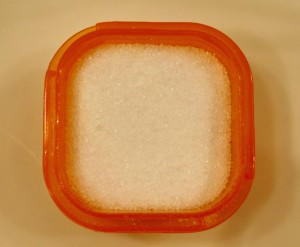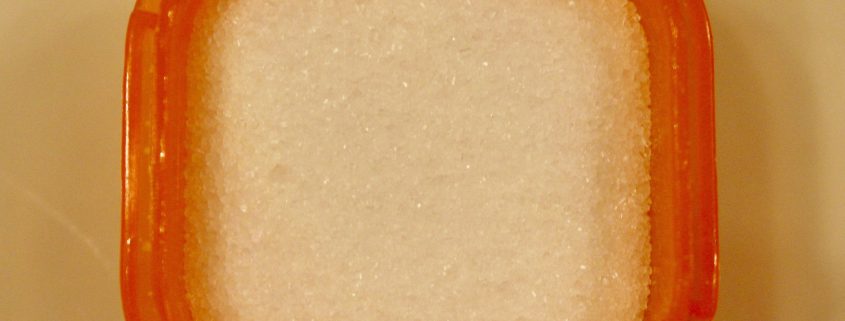Artificial Sweeteners Can Lead to Weight Gain?
 The debate between using artificial sweeteners or sugar in coffee, tea, desserts, etc. has been going on for quite some time. Artificial sweeteners gained their popularity for being a low-calorie alternative to sugar, while still being just as sweet or sweeter. However, when they first gained popularity, little was known about any possible side effects they may have.
The debate between using artificial sweeteners or sugar in coffee, tea, desserts, etc. has been going on for quite some time. Artificial sweeteners gained their popularity for being a low-calorie alternative to sugar, while still being just as sweet or sweeter. However, when they first gained popularity, little was known about any possible side effects they may have.
Artificial sweeteners are usually recommended to help with weight control or as a sugar substitute if you have diabetes. They are widely used in foods and beverages labeled as “sugar-free” or “diet”. Many assume that means they are safe to be consumed, and may even go as far as saying they’re the healthier option. But, is that true?
Research is continuously being thrown around in the media about the effects artificial sweeteners can have on your health, both positive and negative. With all of the research contradicting itself and pinning the 6 high-intensity* sweeteners and sugar against each other, it’s hard to know which you should choose.
*The 6 high-intensity sweeteners that are approved by the Food and Drug Administration (FDA) include saccharin, aspartame, acesulfame potassium (Ace-K), sucralose, neotame, and advantame.
To throw a wrench in the way you already think about artificial sweeteners, a new study was recently published showing that consuming artificial sweeteners can actually increase your appetite.
Researchers from the University of Sydney’s Charles Perkins Centre and the Garvan Institute of Medical Research identified that artificial sweeteners can affect your brain by effecting how your body regulates appetite and altering your body’s taste perceptions. Their research found that artificial sweeteners could stimulate your appetite by triggering a complex neuronal network that responds by alerting you that not enough energy has been consumed.
Using fruit flies and mice, they found when they were exposed to a high sucralose-sweetened diet, their overall energy consumption increased. The artificial sweeteners can make the animals (and you) feel hungrier, resulting in eating significantly more.
The researchers made sure the animals were eating enough calories, so why did the sweeteners increase their desire to eat more? They found that chronic consumption of sweeteners could change the way they perceived the sweetness of their food, creating a discrepancy between sweetness and energy levels, prompting an increase in calorie consumption.
OK, so wait… artificial sweeteners can make you eat more, leading to a possible weight gain? Aren’t you choosing those same sweeteners because they’re low-calorie and can help you lose weight? This new study highlights the fact that artificial sweeteners may actually be a risk factor for obesity. Those “sugar-free” and “diet” options may not help you control your weight like it was once thought.
After reading about this study, are you stuck between using sugar or artificial sweeteners? Instead of asking, “Which is better,” maybe it’s a question of, “Which is the lesser of two evils” because both have different effects on your health. You should take all of the findings from studies on artificial sweeteners and sugar and keep them in mind next time you’re deciding between them. You’ll be able to make your own informed decision on which one you’d rather use.
Your Turn to Take Action: How do you feel about artificial sweeteners? Do you choose sugar or go for the low-calorie options? Let me know in the comments section below.


I didn’t notice an increased hunger with them but I also wasn’t in touch with my hunger & fullness signals. I’ve stopped using them for my I.E. journey & don’t know yet how they effected my eating except I am eating a lot more fruit than veggies. I assume for the sweetness. I use date puree now since the white stuff still triggers diet & healthy mentality but intend to get past that. The studies I’ve read are about their effect on the gut microbiome so they may work against us in multiple ways.
So true Suzanna. More info to come on these studies!